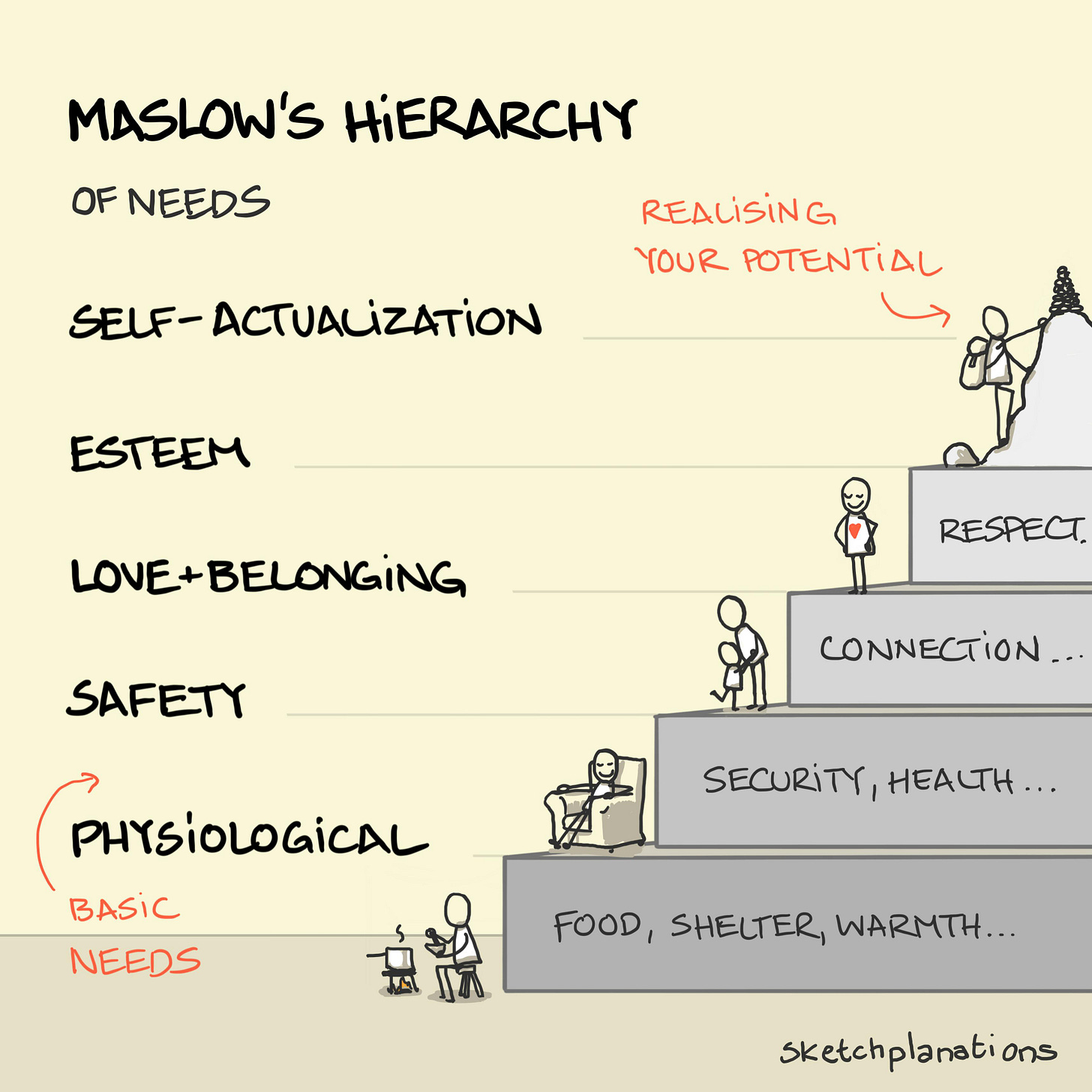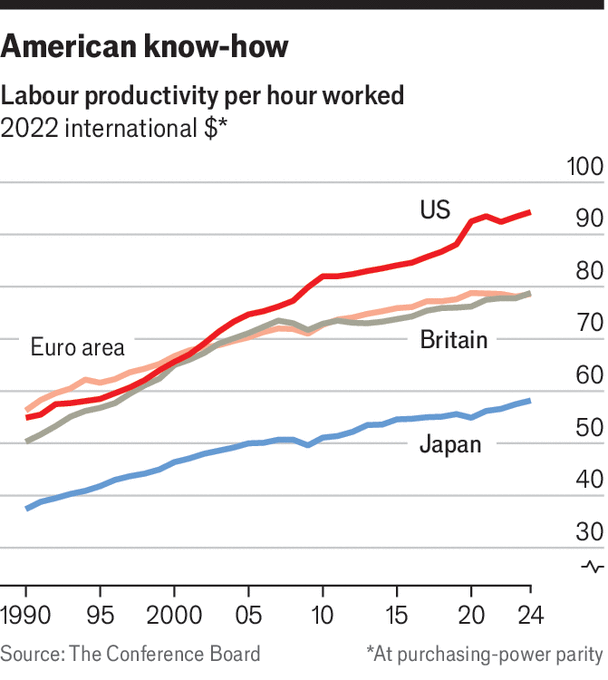Flow State
Autonomy being the path to fulfillment
David Senra, founder of the Founders Podcast, shared a story about Jerry Jones recently, the owner of the Dallas Cowboys. He wrote:
Jerry Jones rolled the dice until his knuckles bled.
He started working at 7 years old. Jerry could sell, sell, sell. He sold fruit at his father’s grocery store in grade school and sold shoes out of the trunk of his car in college. After failing to sell pizza franchises he tried real estate and insurance.
*He never met a high risk deal he didn’t like.*
Jerry got pitched a deal to drill for oil that everyone else said no to. Jerry said yes.
That well made $4 million. He hit again on the next 14 wells.
Jerry decided to drill for natural gas next. He drills 200 wells. He hit on 199 of them. He sells that company for $175 million.
He has $90 million in the bank. He buys the Dallas Cowboys for $140 million.
75 other people had the opportunity to buy the team and said no.
He empties his bank account and borrows $50 million at steep interest rates. The year before Jerry bought the team the Cowboys lost $9 million. Financial advisors told Jerry that the Cowboys were ridiculously overpriced and that he was committing financial suicide. Within a few years the team is printing $30 million a year in profit.
The Dallas Cowboys are worth $10 billion today.
Jerry Jones had a crazy life, but he did things on his own terms. On terms that defied convention, and he had fun doing it. And he became rich doing it.
Sure, he probably had his fair share of stress, but was it worth it? Maybe, you’ll have to ask him. But I think it’s fair to say that he found his calling and has fun doing what he does, a passion for business and deal making, and he is rewarded for his conviction.
This is what’s called Flow State.
According to Wikipedia, flow “is the mental state in which a person performing some activity is fully immersed in a feeling of energized focus, full involvement, and enjoyment in the process of the activity. In essence, flow is characterized by the complete absorption in what one does, and a resulting transformation in one's sense of time.”
Flow serves as a pathway to self-actualization because it helps individuals reach peak performance and deeper fulfillment in their work or passions.
I had a debate with someone recently about safety nets in socialist states versus pure capitalist ones. We spoke about Europe, its lack of startup culture, and why that is. My experience with European entrepreneurs in the startup world is based on feedback from Europeans in the Philippines. Most of them are ambitious and have left their home countries in Europe to opt for opportunities in developing countries. Those signals were enough for me to dig a little deeper to ask why that is.
When I ask them why, many say that there is no ambition in Europe—that it is simply a byproduct of the culture. I am merely relaying the experiences of those who have lived it, as I have not experienced it myself (besides the intense flow state I get from their food and wine). I then read an article by Mario Gabrielle about ambition in Europe, and he expressed the same frustrations.
When I speak to non-Europeans, many speak about how great the European system is, with its social safety nets, including free education, unemployment subsidies, universal healthcare, rent controls, beautiful parks, well-maintained highways, and a high minimum wage—creating an environment where nobody has to fear being left on the streets. They speak about these benefits without considering the trade-offs or the hidden costs of such a system.
As an outsider who has never lived or built a career in Europe, I find that this all sounds beautiful—but what’s the catch? The catch is that the system is highly regulated, with the government imposing stricter limits on what people can and cannot do. You exchange self-actualization for a "comfortable life."
Source
Abraham Maslow once said “One can choose to go back toward safety or forward toward growth. Growth must be chosen again and again; fear must be overcome again and again.”
This statement is true in the sense that self-actualization requires courage, but how can you be courageous in an environment that is highly regulated and controlled? Sure, in places like Europe, you have amazing food, shelter (physiological), security, healthcare (safety), connection (love and belonging), and respect (esteem). The question is, what is happiness?
To self-actualize, you need to love what you do so much that it brings a sense of purpose to your life—it feels like play. There is no dividing line between play and work, weekdays and weekends, full-time and retired. It is one and the same. It’s a blank canvas for Picasso, a golf club for Tiger Woods, a business for Warren Buffett, and the universe for Stephen Hawking. True happiness is achieved in the pursuit of self-actualization, where purpose is achieved.
An environment that limits this is an environment for the mediocre.
As much as everyone says that the US has its problems, it still brings this sense of purpose to anyone that is ambitious. Not so to those who aren’t. The argument to this is “well not everyone is ambitious.” I don’t buy that. I think everyone is ambitious to a certain degree, it’s only that they haven’t found their calling, so they resort to stability. Unfortunately, a huge chunk of the populations falls within this category. I am not saying the US has no issues, because they sure do, but that is for another topic (there are trade offs to everything). Mario Gabrielle of the Generalist wrote a strong piece (mentioned earlier) that’s worth reading about his views of Europe, having lived in both the US and London.
I spoke to a European recently and asked him why he came to the Philippines. He said, "Because there is opportunity here. Compared to most European countries, the regulatory burden in Europe creates more friction than corruption does in the Philippines. The market opportunities are simply too large to ignore."
I found it interesting that many Europeans choose to start businesses in the Philippines because the costs of corruption (and poor ease of doing business) are lower than the regulatory friction in Europe. These entrepreneurs seek self-actualization; otherwise, they would likely take stable corporate jobs in Europe at a multinational or conglomerate.
We all adapt to our environment, but self-actualization is not static. In fact, many Europeans seem to self-actualize in emerging markets, despite their challenges. They still manage to fulfill their needs—physiological, safety, love and belonging, esteem—and ultimately reach self-actualization.
They prefer messy environments and broken systems that offer a path to self-actualization over an organized, comfortable, and developed society that provides none. I say this from an entrepreneurial perspective.
Flow thrives on challenge and reward, but when incentives are removed (e.g., if everyone earns the same regardless of effort), motivation to push oneself into a flow state can diminish, hence the choices of Europeans to leave their developed world for greener pastures in developing countries.
If socialism is highly bureaucratic and centrally planned, it can remove autonomy, which is a key component of flow. Autonomy is needed for highly ambitious people.
Flow happens at the intersection of high challenge and high skill. If competition is discouraged, the push for mastery and innovation can decline, and that is what Europe may be facing.
Source: The Economist
Labor productivity is driven by many factors, but one of the most important factors is technology, which is driven by innovation. New technologies that drive innovation can only happen with a mix of entrepreneurship and investments, both of which are in abundance in the US.
As I get older and push into my 40s, the more I realize that life is short, and too short to work for someone else. I remember working long hours in corporate finance, and hating Mondays. In fact, I hated Mondays so much that I felt stress on Sundays. Not because I hated finance, but because I had to work on someone else’s terms and expectations. My weekends were effectively reduced to just one day—Saturday. I did this for over 12 years, but the main trade-offs (or benefits) were (1) a salary and (2) the buildup of knowledge—two things I needed to eventually go on my own.
Is this a prerequisite for going out on your own? I’d argue not—but that’s another discussion altogether.
I recently spoke to a lawyer who left one of the big firms to start his own practice. The first thing he said to me after I told him I was going all-in on my ventures was, "Doesn’t Monday feel really good?"
At the time, I thought I was the only one who felt this way. It turns out this feeling is common among others.
I’m not saying there are no trade-offs in going out on your own. In fact, the trade-offs are risky—that’s the cost of freedom. These include personal liquidity (being "asset pretty and cash ugly," as one investor put it) and a high risk of failure.
Failure becomes part of the game.
The next time you think about breaking out on your own, ask yourself if you feel good on Mondays. I’m sure some jobs make you feel great on Mondays and still offer autonomy. By autonomy, I mean the freedom to hit the gym at 2:30 p.m. on a random Tuesday. If not, chances are you’re in a job you don’t love—staying for the salary or to meet societal expectations.
As Nassim Taleb once said: "The three most harmful addictions are heroin, carbohydrates, and a monthly salary."
ABOUT THE AUTHOR
Keenan Ugarte is Managing Partner at DayOne Capital Ventures, an independent private holding company that invests in and builds high-growth, early-stage businesses that serve the underserved Philippine mass market. He is also the Co-Founder of The Independent Investor, a media platform spotlighting early-stage companies and innovation within the Philippine startup ecosystem.




